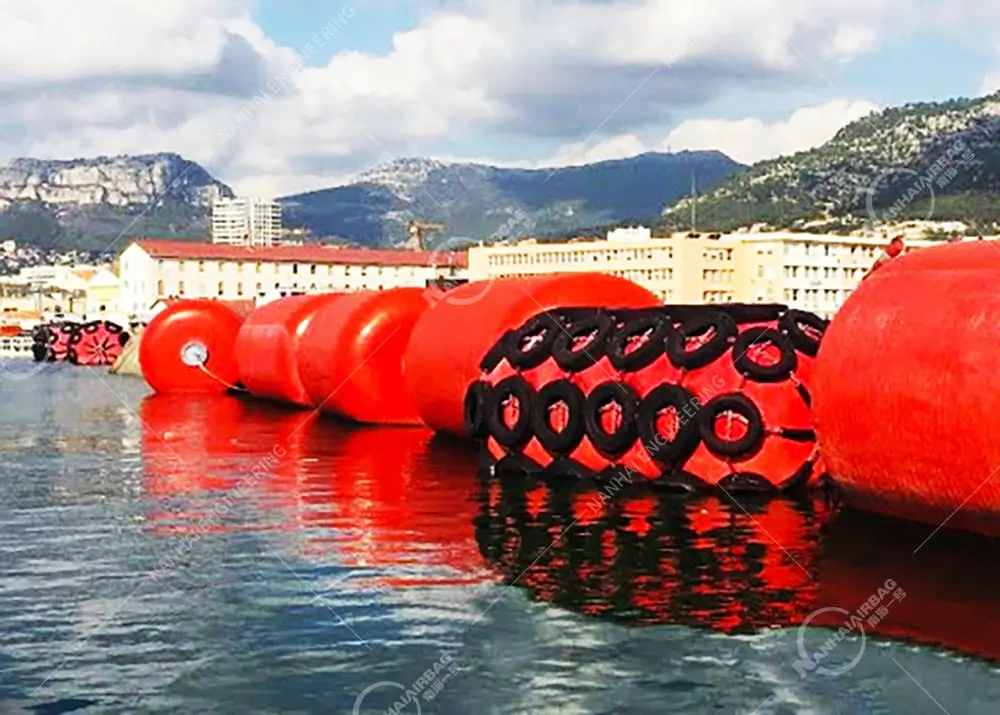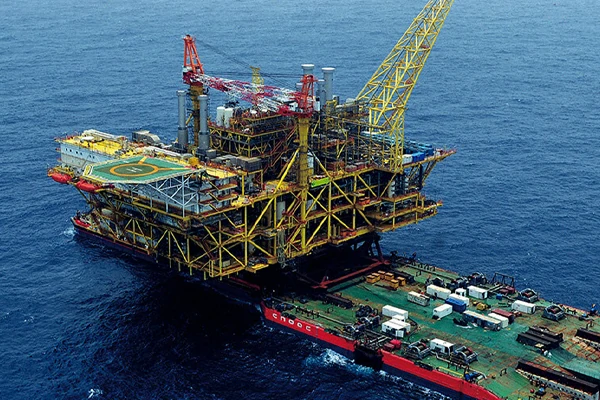Foam Fenders for Ports and Harbors
05/30/2025Foam Filled Fenders in Naval Operations
06/02/2025Closed-Cell Foam Technology in Fenders
In the maritime industry, protecting vessels and docks during berthing is essential. Many operators now rely on foam filled fenders, which use closed-cell foam technology. These fenders offer strong impact resistance, long life, and almost no maintenance. In this guide, we explain how this technology works, where to use it, and why it’s a top choice compared to other types like pneumatic fenders.
What Is a Foam Filled Fender with Closed-Cell Foam?
A foam filled fender uses a solid foam core made with closed-cell technology. This foam does not absorb water because each cell is sealed. It stays buoyant even if the outer layer gets damaged. Most marine foam fenders have a tough outer skin made from polyurethane, which adds strength and durability.
This design makes the fender unsinkable and ideal for harsh marine environments. As a result, operators use them widely for docks, ships, and offshore platforms.
Main Applications of Foam Filled Fenders
Foam filled fenders work in many different areas:
- Ports and Harbors: They protect docks and ships during mooring.
- Ship-to-Ship Transfers: They reduce damage during side-by-side operations.
- Offshore Platforms: Support vessels use them to stay stable and safe.
- Military Bases: They help large ships dock without risk.
- Oil & Gas Terminals: They prevent collisions during loading.
Because of their performance, many clients now ask foam fender suppliers in China to provide customized sizes and colors.
Advantages of Marine Foam Fenders
1. Great Energy Absorption with Low Reaction Force
Foam fenders compress under pressure and absorb high energy. This reduces impact damage to ships and docks. Compared to hard rubber types, they provide better performance.
2. Unsinkable Design
Thanks to the closed-cell core, the fender stays afloat even if the cover is cut or punctured.
3. Easy to Maintain
There’s no need to check air pressure or repair air leaks like with pneumatic fenders. Foam filled fenders are ready to use at all times.
4. Long Service Life
The polyurethane foam fender skin resists UV rays, saltwater, and chemicals. Many fenders last over 10–20 years.
5. Custom Options Available
You can order fenders in different sizes, shapes, densities, and colors. You can also add tire nets or chains. Top foam fender suppliers NANHAI in China offer complete customization to match your exact needs.
Types of Foam Filled Fenders
To match different docking needs, manufacturers offer several types:
- Cylindrical EVA Foam Fender: Great for ports and terminals.
- Rectangular Marine Foam Fenders: Common for ship-to-ship work.
- Cone-Shaped Fenders: Best for tight spaces with strong forces.
EVA foam fenders are popular because they are lightweight and highly resilient.

Closed Cell Foam vs Pneumatic Fender
Let’s compare the two main fender types:
| Feature | Foam Filled Fender | Pneumatic Fender |
|---|---|---|
| Energy Absorption | High | Moderate |
| Risk of Sinking | None (unsinkable) | May deflate |
| Maintenance | Low | Needs regular checks |
| Durability | Excellent (no air system) | Good, but depends on air |
| Initial Cost | Higher | Lower |
| Long-Term Cost | Lower (no upkeep needed) | Higher over time |
As you can see, closed cell foam vs pneumatic fender performance shows the foam option gives better long-term value.
Case Studies: Foam Fender Success in China
Several Chinese suppliers now lead in this market:
- Evergreen Maritime produces high-quality polyurethane foam fenders for offshore and naval uses.
- NANHAI Marine (for example) serves as a reliable foam fender supplier in China, offering customized EVA and PU options.
- Jerryborg Marine exports marine foam fenders globally, focusing on safety and lifespan.
These companies provide field-proven solutions for ports, shipyards, and oil terminals.
FAQs About Foam Filled Fenders
Q: Can I repair a damaged foam filled fender?
A: Yes. You can patch the outer layer. The foam inside still works even if the cover is torn.
Q: Are they good for large ships?
A: Absolutely. You can choose different sizes and densities to match your vessel’s needs.
Q: Do they handle bad weather?
A: Yes. The outer skin protects against UV, seawater, and chemicals, making it reliable in all climates.
Final Thoughts and Buyer’s Guide
If you want a long-lasting, low-maintenance, and safe fender solution, foam-filled fenders are a smart choice. They outperform older models and suit many types of marine operations.
Recommended For:
- Ports and terminal operators
- Offshore platform support teams
- Shipowners seeking long-term value
To get the best deal and performance, talk to a professional foam fender supplier NANHAI in China. They can provide expert advice and custom products that match your exact project.





